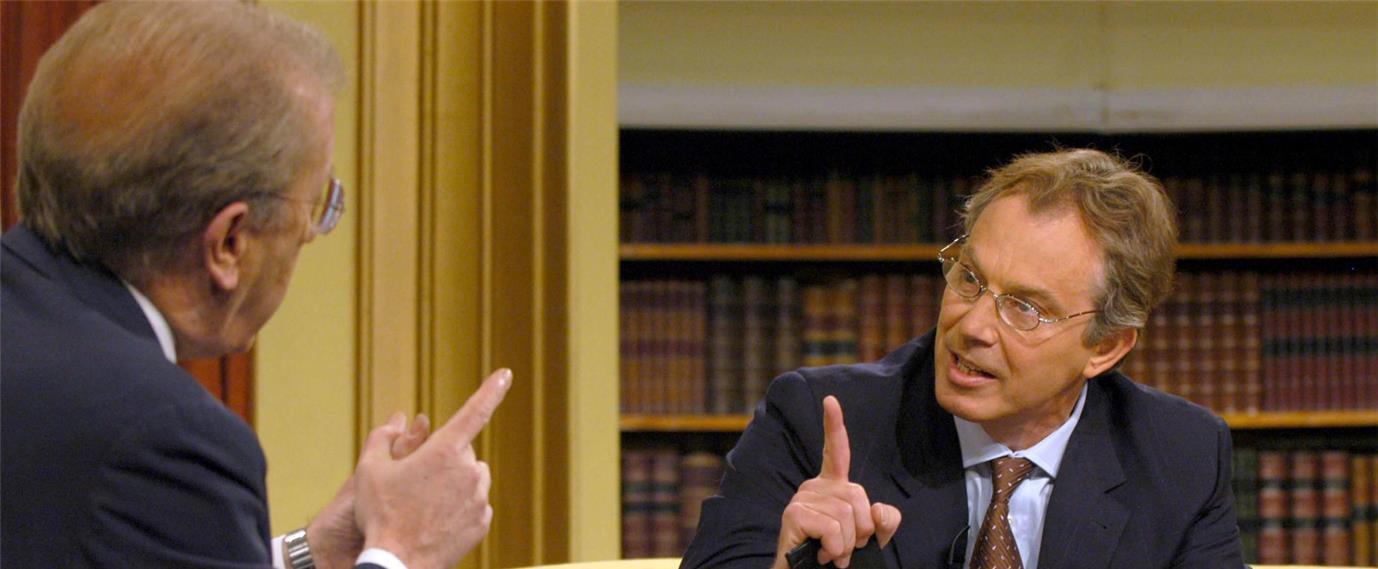قضيتُ طفولتي في قريةشرقي كوبا، واعتدت اللعب في أرضها المليئة بالأشجار العالية التي كنت أختبئ بينها.. هناك تعرفت إلى حيوان زاحف، معروف باتباعه أسلوب تغيير لونه للتأقلم مع المحيط، وأعني الحرباء.
لهذا، لم يكن صعبا عليّ فهم ما قاله لي خوان سانشيز -وهو أحد أساتذتي بكلية الصحافة في جامعة هافانا- أثناء أحد حواراتنا، بأنه لو أردتُّ أن أكون صحفيا حقيقيا، فعليّ أن أتبع استراتيجية الحرباء أثناء عملي، وأنه بغض النظر عن مكانة الصحفي العلمية والاجتماعية، ومكانة المؤسسة الصحفية التي يعمل بها، فمن واجبه أن يتكيف مع الحالة التي يعيشها بطريقة مهنية. وفيما يتعلَّق باللقاءات الصحفية، فالأجدر أن يتأقلم الصحفي مع المتحدِّث.. وبكلمات بسيطة، أن يحافظ على توازن الحوار بينهما، دون أن يتخطى أحدهما الآخر أو يقلل من احترامه، كما عليه ألا يعتقد في لحظةٍ ما أنه أكثر ذكاء ممَّن يلتقي بهم.
ربما كان تصرُّف صحفيِّي بعض القنوات الإخبارية خير مثال على ما قاله سانشيز، إذ يتصرَّف الكثير من المذيعين ذوي الخبرة الطويلة أو المتخصِّصين في شأن ما وكأنَّهم نجوم أمام المتحدثين، الذين يشعرون بعدم الراحة خلال اللقاء، كما يلمس المشاهد نفسُه نبرة الاستعلاء لدى المذيع، الأمر الذي يثير موجات نقدية حول لقاءات من هذا النوع.
في كتابها "أوريانا فاياسي تجري لقاء مع نفسها" (إسبانيا، 2004)، تشير الصحفية الإيطالية أوريانا فاياسي إلى أنها أضاعت مقابلات قيِّمة بسبب ما أسمته اختلالا في توازن موقفها تجاه المتحدث. وبالنسبة لها، فإن الصحفي الذي يبدو متذللا أمام السياسيين المتعصبين، سيكون مجبرا على القبول بالكيفية التي يديرون بها اللقاء الصحفي. وعن هذا تقول: "عليه (المتحدث) أن يشعر بأن هناك من يتحداه، ومن يسائله.. أن يعلم أنه لن يتمكن من خداع الصحفي ولا الضغط عليه بالمراوغات السياسية والحيل التي يستخدمها مع جمهوره". وأضافت أن الصحفي الذي يبدي شفقته تجاه ضحايا الوحشية النازية أو ضحايا أي قضية، فإنه يغلق الباب أمام كثير من الاعترافات،لذا فهي تنصح الصحفيين بقولها: "لا إطراء، ولا مساواة، يقللان من شأنك أمام المتحدث".
لا تغيّر جلدك، بل أخضعه للبيئة
قبل الثورة الكوبية التي حدثت عام 1959، كانت كوبا تسمى "ماخور الأميركيتين"، وقد سعت الثورة للتخلص من ذلك الوصف. ورغم أنها سنت قوانين تمنع أعمال الدعارة، فإنها لم تقض عليها تماما. وفي عملي الصحفي، توجَّب عليّ إجراء تحقيق عن هذا المستنقع القذر، فأجريت 200 مقابلة في فترة استمرت خمس سنوات، التقيت خلالها بائعات هوى وتجار بشر ومروجي مخدرات وأصحاب مواخير غير قانونية، والعديد من الشخصيات التي استفادت من الأرباح القذرة المكتسبة من تلك المهنة المغرقة في القدم والمهينة لكرامة الإنسان.
إن إجراء مقابلة صحفية لا ينحصر في إعداد الأسئلة، بل التنقيب تحت جلد المتحدث بحثا عن الحقيقة التي يستطيع هو وحده تقديمها لنا. ومن أجل تحقيق ذلك، لا بد من هدم عدة حواجز، من أهمها: الشك الذي يراوده عند التحدث مع شخص مجهول حول موضوع معقد، وربما خطير، ثم غريزة البقاء على قيد الحياة التي يفكر بها أي شخص لو اعتقد أن كلماته ستجلب له المتاعب، إضافة إلى الظروف الشخصية والاجتماعية والسياسية التي تحيط بالمتحدث.
وفي الحالة التي عايشتُها، وبسبب منع الحكومة الكوبية لهذه الأعمال، والآراء المتكونة لدى الناس مسبقا عن بائعات الهوى، أو ما يطلق عليهن في كوبا "خينيتيراس"، فقد كنت أحاول أن أتكيف مع نفسيات من ألتقي، ليس فقط بأن أغيّر جلدي، بل أن أشعر أن هذا الجلد الجديد هو في الأصل جلدي، مستبعدا النصائح الواردة في دليل الصحفي لإجراء المقابلات.
وهنا يتدخل عنصر يتحدث عنه الكثيرون لكنهم كثيرا ما يغفلونه بسبب ضغط العمل، وهو: دراسة سابقة عن المتحدث ومعرفة ما يحبُّ، وعاداته وتاريخه الشخصي ونقاط ضعفه.. كل ذلك بهدف معرفة ما ينبغي وما لا ينبغي عليك سؤاله.
كنت قد عشت فترة في تلك الأحياء المهمشة وتحدثت بلهجة ساكنيها.. لعبت البيسبول في المنتزهات مع شباب تحولوا لاحقا إلى تجار بشر، والتقيت فتيات علمت فيما بعد أنهن التحقن بالعمل في المواخير.راقتربت أكثر من ضحايا ذلك المجتمع الموحل، وكأنني واحد منهم يعلم تماما الأسباب التي جعلتهم ينحدرون إلى هذه الأوضاع الجحيمية.. فلو أنني اقتربت منهم متخذا دور الحاكم أو القاضي، لأضعت فرصة الوصول إلى أعماق حياتهم وخوفهم وتجاربهم القاسية.
فأي أسلوب استخدمتُ؟
حاولت ألا أجعلهم يشعرون أنهم خاضعون لتحقيق أو لاستجواب. وببساطة، كانوا يعتقدون أنهم يتحدثون مع واحد منهم عن عوالمهم.. ضمنتُ لهم أنني لن أخون اعترافاتهم.. تجنبت الأسئلة والتعليقات التي تجعلهم يشعرون أنهم بائسون.. لم تكن لديّ أية أحكام نقدية، خصوصا كتلك التي أطلقتها ونشرتها الحكومة. وفي نفس الوقت، انتظرت اللحظة المناسبة لإعلامهم بأنهم لن يتحولوا إلى أبطال مجهولين في الواقع القاسي للمهمشين في كوبا.. كنت مستعدا لأكون صوتهم، أن أقول ما لا يجرؤون على قوله، بمعنى أنني تحولت إلى شريك لهم.
خلصتُ من تلك التجربة التي وضعتها في كتاب؛ أن على الصحفي أن يراقب التفاصيل ويحللها، وأن يدقق في اختيار الأشخاص الذين يجري معهم مقابلات بحيث يضيفون جديدا إلى الحقيقة التي يحاول إيجادها. من الأفضل ألا يُظهر الصحفي ذكاءه وجرأته وتجربته ومستواه الاجتماعي، بل ينبغي أن يخفي تلك الأمور كما تفعل الحرباء.
وأخيرا، أن يندمج في عالم المتحدث، مع إدراكه أنه فقط بهذه الطريقة يستطيع أن يكشف الغموض المحيط به، كحرباء تتأقلم مع واقع يصعب على الآخرين إدراكه.








































